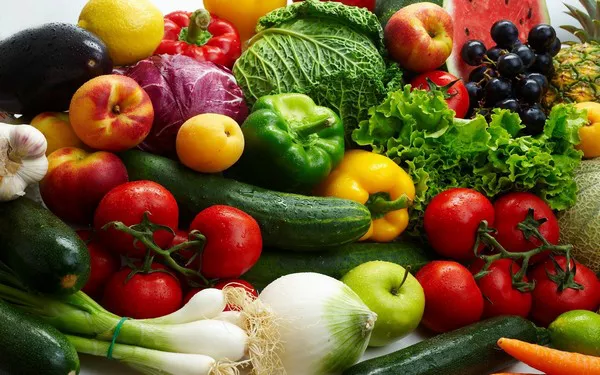Protein is an essential macronutrient that plays a vital role in various physiological processes. While animal products have long been associated with protein intake, there is a growing interest in vegetarian protein sources due to health, ethical, and environmental reasons. In this article, we delve into the world of vegetarian protein, exploring its diverse sources, nutritional benefits, and dispelling common misconceptions. Whether you follow a vegetarian diet or simply wish to incorporate more plant-based protein into your meals, this comprehensive guide will empower you to embrace the power of vegetarian protein.
1. Understanding Vegetarian Protein:
Vegetarian protein refers to protein sources derived solely from plants, including legumes, grains, nuts, seeds, and certain vegetables. These sources are devoid of animal products and provide ample protein content to support a healthy and balanced diet.
2. The Nutritional Benefits of Vegetarian Protein:
Plant-based proteins offer a range of nutritional benefits beyond protein content. They are typically lower in saturated fat and cholesterol, while being rich in dietary fiber, antioxidants, vitamins, minerals, and phytochemicals. The combination of these nutrients contributes to overall health and well-being.
3. Legumes: Protein Powerhouses:
Legumes, including beans, lentils, chickpeas, and soybeans, are exceptional sources of vegetarian protein. These protein powerhouses offer a wide range of protein content, with cooked beans providing around 7-10 grams of protein per half-cup serving. Additionally, legumes are high in dietary fiber, iron, and other essential nutrients, making them a cornerstone of vegetarian protein sources.
4. Grains: Nutrient-Dense Protein:
While grains are often associated with carbohydrates, many grains also contain appreciable amounts of protein. Quinoa, amaranth, millet, and buckwheat are considered complete proteins, meaning they provide all essential amino acids required by the body. Other grains such as brown rice, whole wheat, and oats also contribute to protein intake and offer additional nutritional benefits.
5. Nuts and Seeds: A Protein-Packed Snack:
Nuts and seeds not only offer healthy fats but also provide a significant amount of protein. Almonds, walnuts, chia seeds, flaxseeds, and hemp seeds are examples of protein-rich options, with around 6-8 grams of protein per ounce. They are versatile additions to meals, snacks, and smoothies, providing a satisfying crunch and boosting protein content.
6. Soy and Soy Products: Complete Vegetarian Protein:
Soybeans are a unique plant-based protein source as they contain all essential amino acids, making them a complete protein. Soy products such as tofu, tempeh, and edamame are rich in protein, with tofu containing around 8 grams per 3.5 ounces. These soy-based options offer versatility in cooking and provide a wide range of nutrients beneficial for vegetarians and vegans.
7. Vegetables: Surprising Protein Sources:
While vegetables are not typically associated with high protein content, certain vegetables do contribute to overall protein intake. Green peas, spinach, broccoli, and Brussels sprouts are examples of vegetables that offer notable protein content alongside their other nutritional benefits. Although the protein content in vegetables is relatively lower compared to other sources, their contribution to overall protein intake should not be overlooked.
8. Combining Protein Sources for Complete Nutrition:
To ensure a balanced amino acid profile, combining different vegetarian protein sources is recommended. By incorporating a variety of legumes, grains, nuts, seeds, and soy products into meals, you can create complete protein combinations that provide all essential amino acids necessary for optimal health.
9. Meeting Protein Needs on a Vegetarian Diet:
Meeting protein needs on a vegetarian diet is achievable with thoughtful meal planning and an understanding of protein requirements. While individual protein needs vary based on factors such as age, activity level, and overall health, aiming for a range of 0.6-0.9 grams of protein per pound of body weight per day is a general guideline for most individuals.
10. Dispelling Common Misconceptions:
There are common misconceptions surrounding vegetarian protein, including concerns about protein quality, digestibility, and adequacy. However, scientific evidence suggests that a well-planned vegetarian diet can provide all essential amino acids and meet protein needs. By selecting a variety of vegetarian protein sources and ensuring sufficient calorie intake, individuals can obtain high-quality protein from plant-based sources.
Conclusion:
Vegetarian protein sources offer a diverse range of options that are not only nutritionally beneficial but also align with ethical and environmental considerations. Legumes, grains, nuts, seeds, soy products, and even select vegetables all contribute to a well-rounded vegetarian protein intake. By incorporating a variety of these protein sources into meals, individuals can meet their protein needs and enjoy the numerous health benefits associated with plant-based nutrition. Embrace the power of vegetarian protein, explore culinary creativity, and thrive on a vegetarian diet that supports both personal and planetary well-being.


